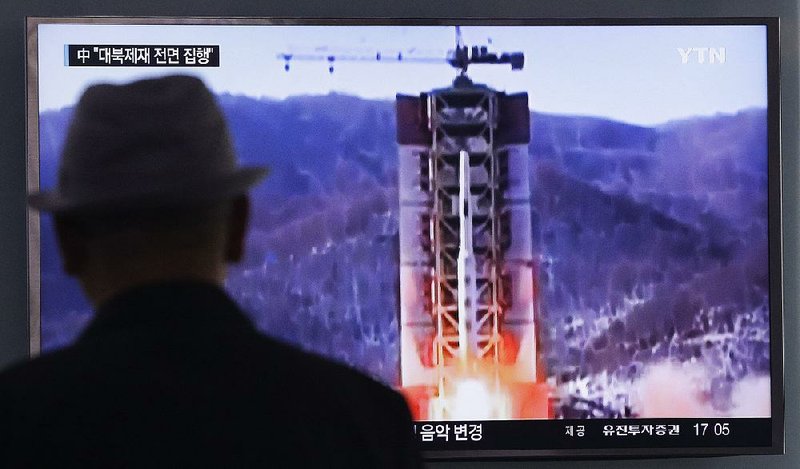SEOUL, South Korea -- North Korea attempted Thursday to launch two suspected intermediate-range missiles, South Korean defense officials said, raising the number of apparent failures in recent weeks to three.
The reported failures come ahead of a major North Korean ruling-party meeting next week at which leader Kim Jong Un is believed to want to place his stamp more forcefully on a government he inherited after his dictator father's death in late 2011.
The launches were believed to be the second and third attempted tests of a Musudan, a new intermediate-range missile that one day could be capable of reaching far-off U.S. military bases in Asia and the Pacific.
On Thursday morning, a projectile fired from a North Korean northeastern coastal town crashed a few seconds after liftoff, a South Korean Defense Ministry official said, requesting anonymity because of office rules. It wasn't immediately known whether it crashed on land or into the sea.
Then, in the evening, South Korea's Joint Chiefs of Staff said in a statement that the North fired another Musudan missile near Wonsan but that launch also presumably failed. There were no other details.
The North American Aerospace Defense Command confirmed that North Korea attempted two missile launches that did not pose a threat to North America. It did not provide details in a brief statement.
The Pentagon said in a statement later Thursday that both launch attempts failed.
South Korea's Foreign Ministry called the launches a provocation and said it will try to increase international pressure on North Korea.
Japan's U.N. Ambassador Motohide Yoshikawa condemned what he called a "series of grave and very clear violations of Security Council resolutions."
"This is a threat to Japan's national security," he said.
Yoshikawa said the United Nations Security Council is preparing a statement in response to the launches.
The launch attempts come as North Korea expressed anger over annual South Korean-U.S. military drills that it calls a rehearsal for an invasion. The North has fired many missiles and artillery shells into the sea in recent months in an apparent protest against the drills, which end Saturday.
Earlier this week, South Korean media outlets reported that North Korea had placed a Musudan missile on standby for an impending launch. The reports said the missile was one of two Musudan missiles deployed earlier in the northeast.
South Korean and U.S. officials said there was a North Korean missile launch on April 15, the birthday of the North's late founder, but they have not officially confirmed it was a Musudan. U.S. officials said that launch ended in failure.
Musudan missiles have a potential range of about 2,180 miles, which would put U.S. military bases in Guam within their striking distance. North Korea also is pushing to develop a nuclear-armed long-range missile capable of reaching the U.S. mainland, but South Korea believes it does not yet possess such a missile.
Before this month's suspected launches, North Korea had never flight-tested a Musudan missile, though one was displayed during a military parade in 2010 in Pyongyang.
There is speculation in South Korea that North Korea soon will conduct a fifth nuclear test.
The North carried out a fourth atomic test in January and a long-range rocket launch in February, earning worldwide condemnation and tougher U.N. sanctions.
In New York, U.N. spokesman Stephane Dujarric said "these types of actions by the DPRK are extremely troubling and we would yet again encourage the DPRK to cease any further provocations and return to compliance with its full international obligations."
South Korean President Park Geun-hye said Thursday that there were unspecified signs that a fifth test was "imminent." She warned another nuclear test would result in North Korea suffering harsher sanctions.
Information for this article was contributed by Kim Tong-hyung, Michael Astor and Edith M. Lederer of The Associated Press.
A Section on 04/29/2016


